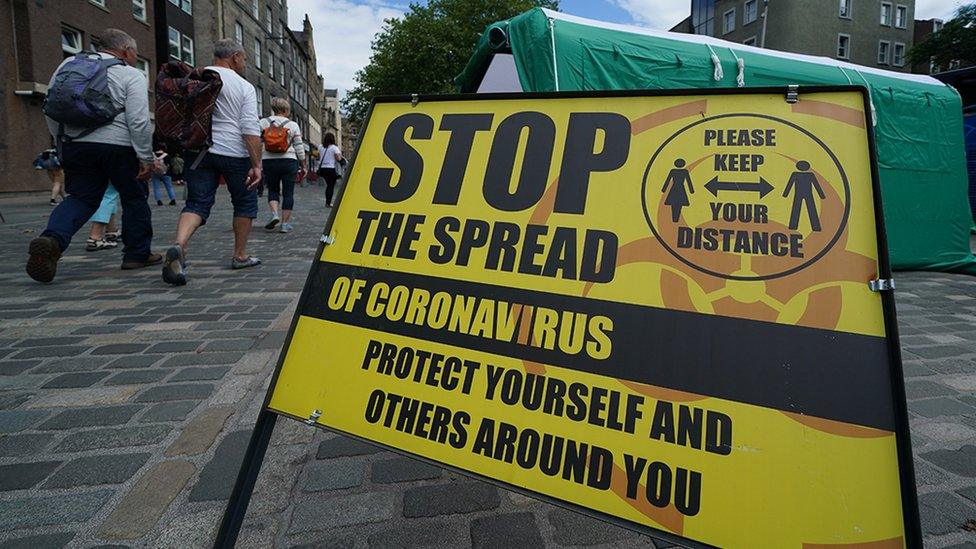Your Questions Answered on Omicron in Scotland
- Published

Tougher Covid restrictions have been introduced in Scotland following the rapid emergence of the highly transmissible Omicron variant.
BBC Scotland answers some of your questions on the latest measures designed to halt the spread of the virus.

Are we safe to see our families over the next few weeks? Question from Emma in Wiltshire
Household mixing is not being banned or restricted in law as it was previously.
But the Scottish government is issuing strong guidance to limit the number of people outside our own households that we interact with.
First Minister Nicola Sturgeon says: "This will help break transmission chains."
Those who do plan on socialising are asked to limit the number of households represented in your group to a maximum of three.
People are also being urged to test before they meet up.

Will the government make home working mandatory? Question from David in Insch
The first minister has strengthened the rules on home working in a bid to stop the spread of Omicron.
She told MSPs that the potential for home working was not yet being maximised.
This has echoed the experience of David who said his company has been "ignoring" the Scottish government's advice.
Ms Sturgeon says: "For employers more generally, the guidance will make clear that enabling staff who were working from home at the start of the pandemic to do so again is now a legal duty."
Those who cannot work from home, for example in the manufacturing and hospitality sector, are being asked to test regularly before going to work.

How will the latest guidelines affect gigs and bigger events? Question from Craig in Fife
Despite the fears over Omicron no fresh mandatory restrictions have been announced for concerts and major events, such as football matches.
Under the vaccine passport scheme which was introduced in October, anyone over the age of 18 must show proof - if asked - that they have had both doses of the vaccine before they are allowed entry to:
Nightclubs and adult entertainment venues
Unseated indoor live events with more than 500 people in the audience
Unseated outdoor live events for more than 4,000 people
Any event, of any nature, attended by more than 10,000 people
Proof of a negative lateral flow device test is also now accepted.
Ms Sturgeon repeated her call for people to test regularly in a bid to stop the spread.
Deputy First Minister John Swinney later told the BBC that restrictions were not presently being considered for the League Cup final this weekend but that fans should take extra care. There may also be extra distancing measures at the stadium.
What are the rules in care homes? Question from Elizabeth in Edinburgh
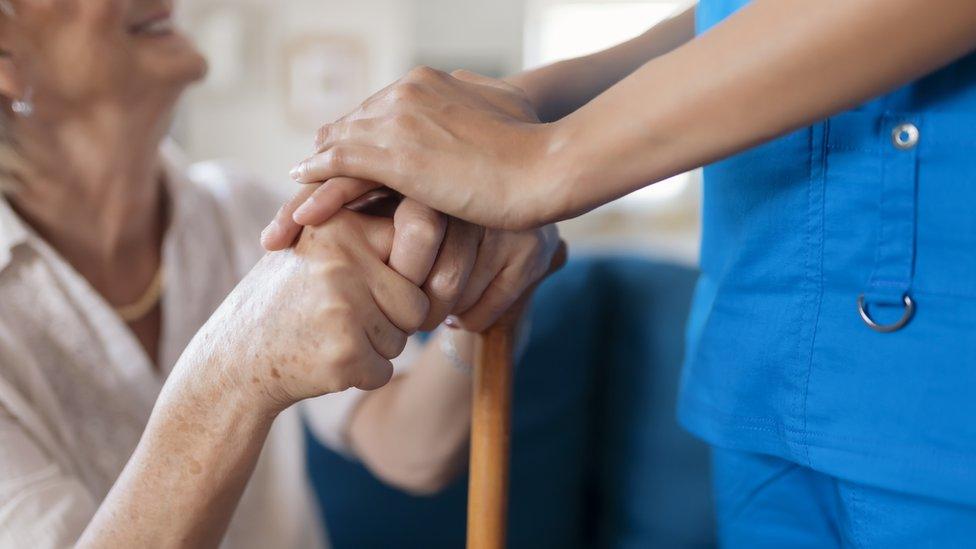
The care home sector has been the worst hit during the pandemic and last week it was recommended that staff take lateral flow tests on a daily basis.
The Scottish government is now advising that individual visits in care homes should not involve any more than two households seeing a resident at a time.
For hospitals, it is recommended that no more than two people visit a patient at any one time.
In both cases it is recommended a visitor takes a lateral flow test before each visit.
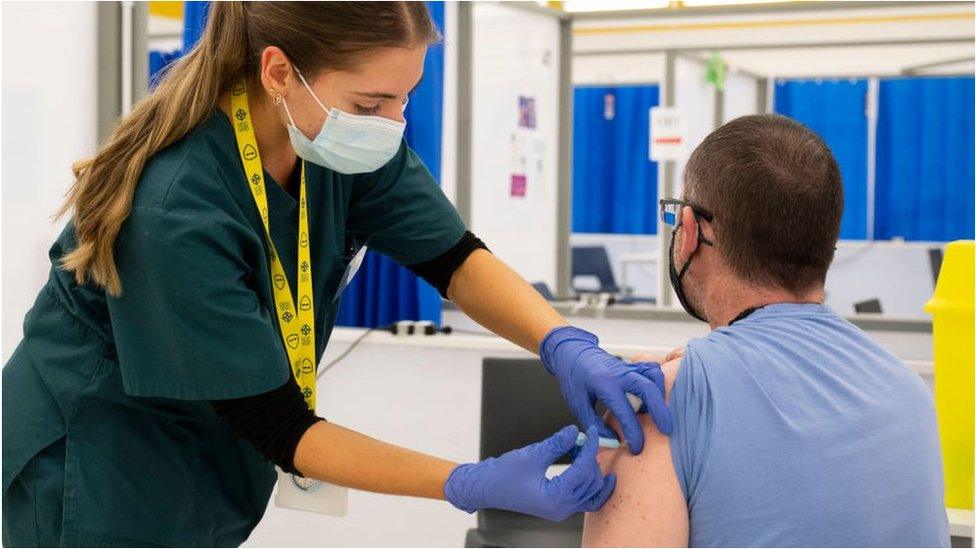
I am due my booster and have had two Oxford jabs - can I take Pfizer for my third? Question from Thomas in Bellshill
The evidence so far suggests that Omicron may be more infectious than previous variants, and that existing vaccines may be less effective at stopping it.
However, early studies suggest that an extra dose of vaccine can prevent around 75% of people getting any Covid symptoms.
The booster will be a single dose of either Pfizer or Moderna, regardless of which vaccine you received for your first two jabs.
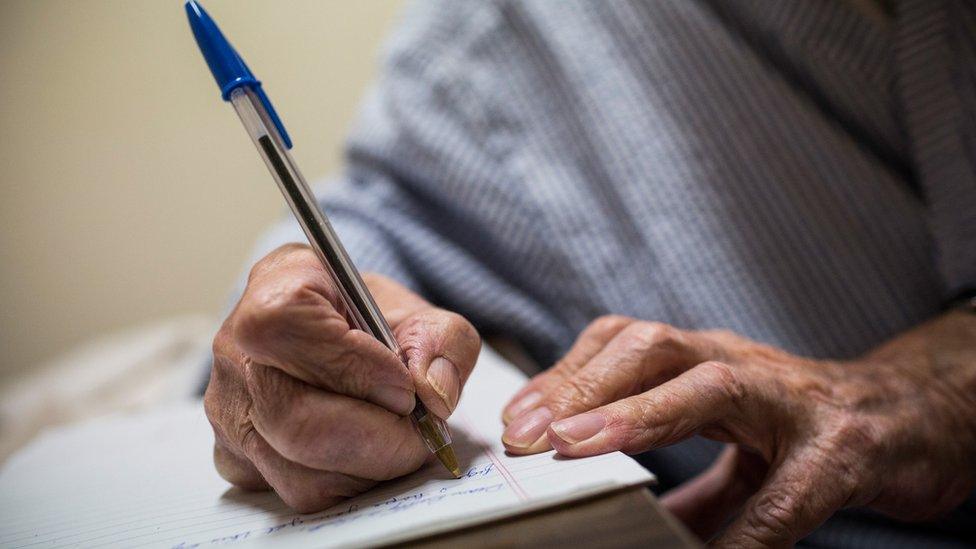
Can a group such as a neighbourhood committee meet in a small flat? Question from Tom in West Linton
Since August there has been no limit on the numbers who can meet indoors.
But the surge in Omicron cases has forced the Scottish government to issue new guidance.
Tom, who lives in a retirement village, wants to know how this affects planned committee meetings.
The first minister has now recommended that no more than three households should meet indoors and people are also encouraged to test before they meet up.
Ms Sturgeon says: "One of the things we have already learned about Omicron is that it has a very high attack rate.
"That means if just one person in a gathering is infectious, that person is likely to infect many more people in the group than was the case with the Delta variant."
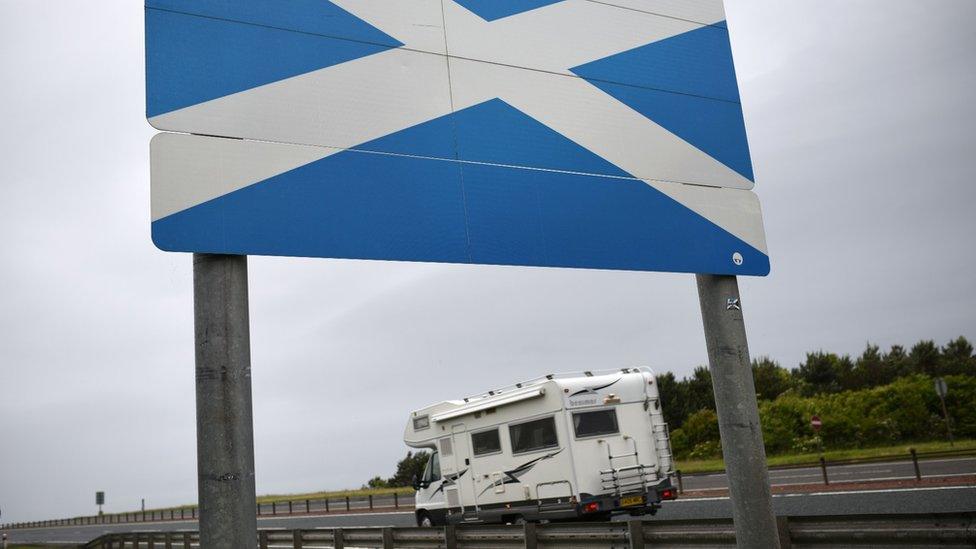
Will travel to Scotland from England be banned over Christmas and New Year? Question from Amanda in Gravesend
Last year non-essential cross border travel was banned over the festive period and the restrictions were only lifted on 26 April.
But there is no indication that similar measures will be introduced this year as it would require another national lockdown.
Ms Sturgeon made no specific reference to travel in her latest update but issued "strong guidance" to people to limit their social contacts in the run-up to Christmas "as far as possible".
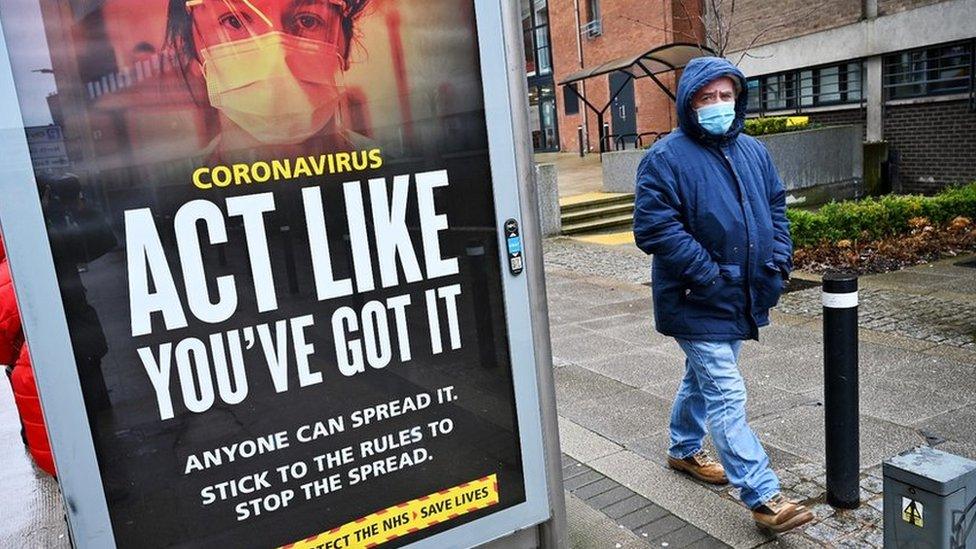
Does my family need to self isolate after my son tested positive for Covid? Question from William in Edinburgh
Changes to Scotland's self-isolation rules in response to the threat posed by the new Omicron variant were announced last Friday.
The guidance, which came into force on Saturday, states household contacts of all Covid cases will have to isolate for 10 days, regardless of vaccination status.
This also applies even if they initially get a negative PCR test.
If a household contact develops symptoms while self-isolating, they should book a PCR test and, if positive, extend their self-isolation for a further 10 days from their own symptom onset.
Non-household contacts who are a partially or non-vaccinated adults will be asked to self-isolate for 10 days, whether or not they have symptoms.
If they are a fully-vaccinated adult, provided they return a negative PCR test result and remain asymptomatic, they may end self-isolation.
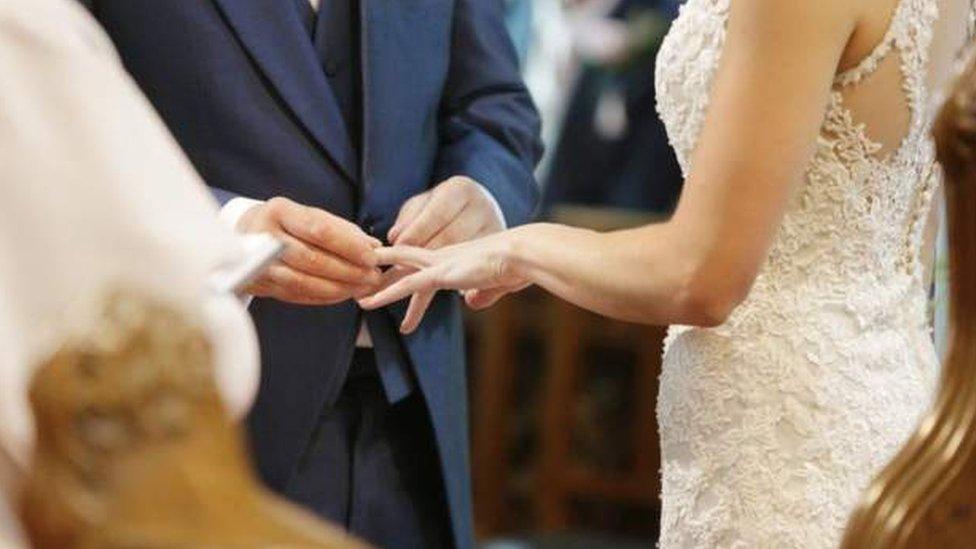
Are we back to restrictions on weddings and funerals? Question from Kirsty in Montrose
We have had a lot of questions about the potential impact of Omicron on major life events.
During the pandemic, both weddings and funerals were hit hard by restrictions on guest and mourner numbers.
But the legal requirement for physical distancing and limits on gatherings were removed on 9 August.
Despite the concerns over the new variant, there has been no change to the current guidance.
It states: "There are no limits on the number of people who can attend weddings, civil partnerships and funerals. This is also the case for other life events such as christenings, anniversary celebrations, bar mitzvahs and bat mitzvahs."


Related topics
- Published14 December 2021
